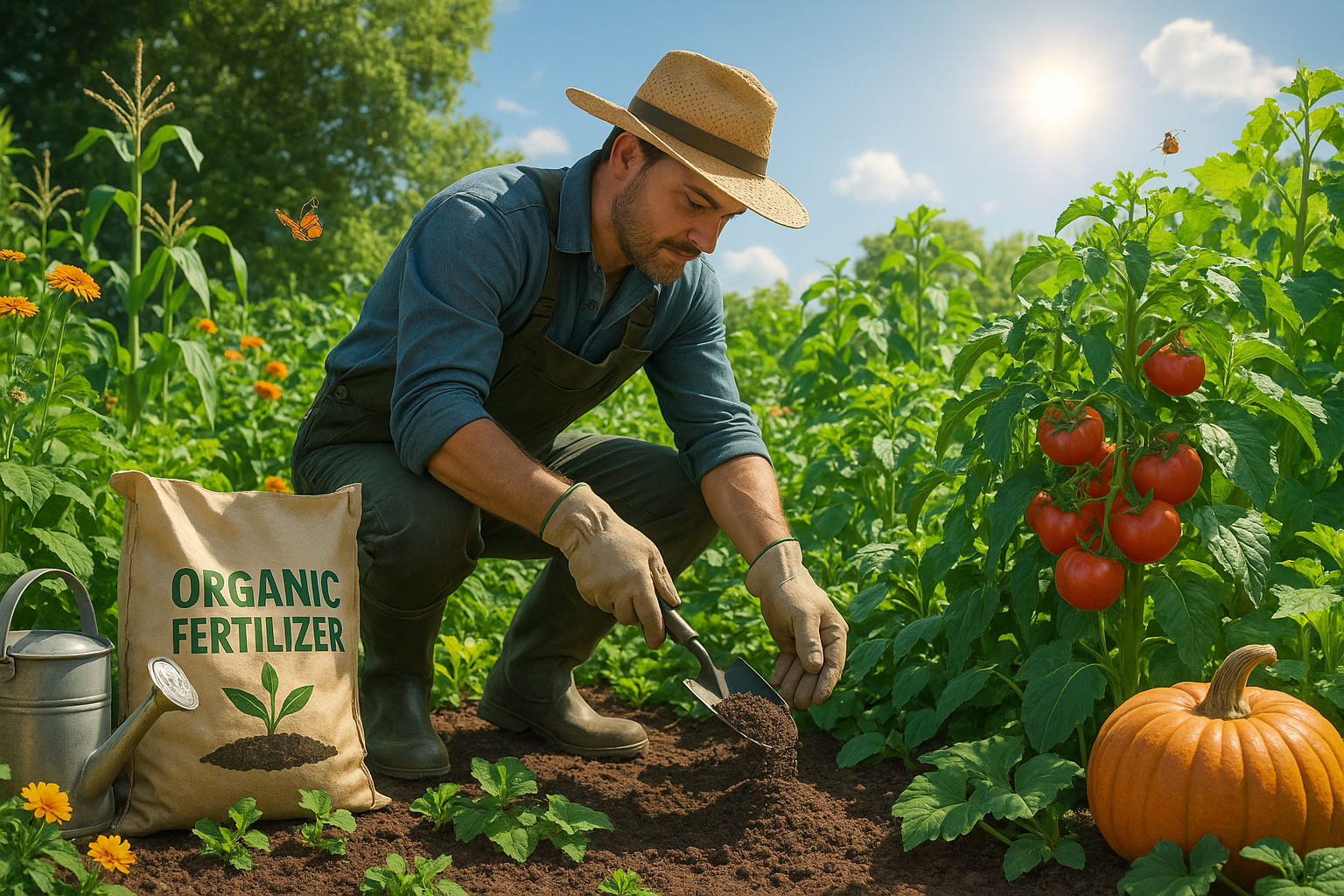Gardening is much more than a hobby; it’s an art, a science, and a passion that connects us to nature in profound ways. As you step into your garden, you might marvel at the vibrant colors, breathe in the earthy aromas, and take pride in the life you’ve nurtured. Yet, every gardener knows that achieving peak performance in a garden is not just about the effort put in; it’s about using the right tools and techniques to unlock the full potential of your plants.
In this quest for ultimate growth, organic fertilizers have emerged as a cornerstone for gardeners who seek to cultivate lush, thriving ecosystems. But what exactly makes organic fertilizers a superior choice? How do they work in harmony with nature to boost your garden’s growth, and how can you make the most of them? 🌱
In this comprehensive guide, we’ll delve into the transformative power of organic fertilizers. Our journey will explore their myriad benefits, reveal how they enrich the soil, and discuss why they’re a sustainable choice for both your garden and the planet. We’ll also provide practical tips on selecting the best organic fertilizers tailored to your garden’s unique needs and share insights into their application for maximum impact.
First, let’s address the fundamental question: why choose organic? In an era where sustainability is at the forefront of our decisions, organic fertilizers offer a natural solution that aligns with eco-friendly practices. Unlike synthetic fertilizers that may promise quick results but often at a cost to soil health and the environment, organic options nurture the soil’s structure and biodiversity. They break down slowly, ensuring a steady release of nutrients and supporting a balanced ecosystem.
Beyond environmental benefits, organic fertilizers contribute to the resilience and vitality of your plants. They improve soil aeration, enhance water retention, and promote robust root development. The result? Healthier plants that are better equipped to resist pests and diseases, and a garden that flourishes with less intervention. 🌿
We’ll also discuss the different types of organic fertilizers available. From well-known options like compost and manure to lesser-known but equally effective choices such as bone meal, fish emulsion, and green manure, you’ll discover a range of possibilities to tailor your approach. Each type has its unique properties and applications, offering versatility to address specific gardening challenges and goals.
Application techniques will be another focus area, as proper usage can significantly influence the success of organic fertilizers. We’ll guide you on when and how to apply them for different plant types and growth stages, ensuring you get the most out of your investment. Whether you’re dealing with flowers, vegetables, or fruit trees, the right application can make all the difference in achieving vibrant blooms and bountiful harvests.
Additionally, we’ll explore some common myths and misconceptions surrounding organic fertilizers. These misconceptions often deter gardeners from fully embracing organic methods, but we’ll debunk these myths with evidence-based insights and real-world examples, empowering you with knowledge and confidence. 💡
Finally, our discussion will include expert tips and success stories from seasoned gardeners who have witnessed firsthand the transformative effects of organic fertilizers. Their experiences will not only inspire you but also provide practical advice and creative ideas to elevate your gardening practice.
Whether you’re a seasoned gardener or just beginning your journey, this guide aims to equip you with the knowledge and tools to harness the power of organic fertilizers for peak performance. Your garden is a living entity, and with the right nourishment, it can thrive beyond your expectations. So, let’s embark on this green journey together and unlock the secrets to ultimate growth!

Conclusion
As we conclude our exploration of organic fertilizers, it’s clear that nurturing the soil naturally leads to stronger, healthier plant growth. Unlike synthetic alternatives, organic fertilizers enrich the earth with vital nutrients while fostering microbial life that sustains long-term fertility and balance.
The true power of organic fertilizers lies in their harmony with nature. 🌎💧 By recycling nutrients through compost, manure, and plant-based materials, growers enhance soil structure, retain moisture, and promote sustainable agriculture. Ultimately, boosting growth with organic fertilizers is more than a cultivation method — it’s a commitment to environmental stewardship, soil vitality, and the future of regenerative farming.
Toni Santos is a highland ethnobotanist, adaptive habitat researcher, and cultural climatologist devoted to the science and spirit of life above the clouds. Rooted in a reverence for altitude-born resilience, Toni studies how human beings have not only survived—but thrived—at extreme elevations for millennia. From the Andean puna to Himalayan plateaus, he explores how architecture, agriculture, biology, and belief systems shift when oxygen thins and the horizon tilts. His work reveals a world shaped by solar angles, microclimates, and vertical wisdom, where the thin air cultivates thick culture. Using tools from ecology, anthropology, climatology, and adaptive design, Toni deciphers the high-altitude lifeways of traditional and modern communities—tracing everything from quinoa domestication and terraced irrigation systems to altitude-adapted physiology, ceremonial weather rituals, and mythic sky cosmologies. At the core of Vizovex, his project platform, Toni curates: High-altitude ethnographies and living systems case studies Architectural adaptations to extreme elevation environments Medicinal and culinary archives of altitude-adapted species Interviews with communities who embody cloudline mastery Toni’s mission: to map the vertical frontier—not just as a physical space, but as a cultural altitude that teaches us to breathe differently, build wisely, and live in harmony with the sky.




